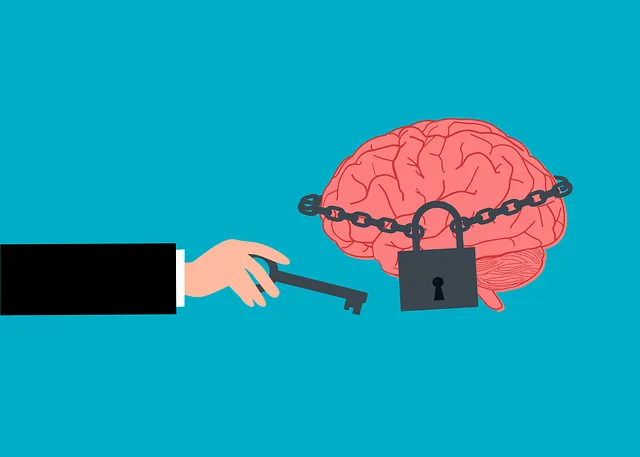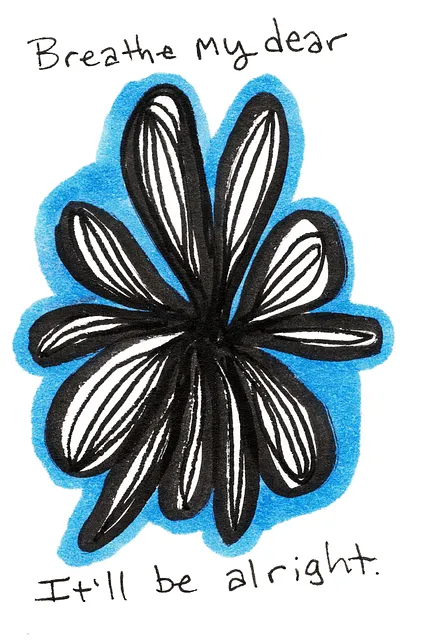Mobile apps are transforming mental wellness support, especially in areas like Englewood where traditional services face barriers. Apps offer personalized tools for stress management, mindfulness, and risk assessment, empowering users to manage their emotional well-being. The Englewood Kaiser Mental Health Programs serve as a model, focusing on promoting emotional well-being among healthcare providers through digital interventions that foster community and self-care practices. Effective mental health apps should incorporate evidence-based practices like cognitive-behavioral therapy, mindfulness, and tailored self-care strategies, ensuring user privacy and personalized features. The development process involves defining functionality, secure data storage, and accessible interfaces with emotional intelligence tools. A successful marketing strategy includes leveraging social media, interactive elements, community forums, and social skills training modules to drive engagement and growth.
Mental wellness apps are gaining traction as a vital tool in addressing growing concerns about psychological health. With the increasing demand for accessible, personalized support, understanding the market need for these applications is crucial. This article explores the development of mental wellness apps, drawing insights from Englewood Kaiser Mental Health Programs as a successful case study. We’ll delve into key features, development processes, and marketing strategies that contribute to effective mental health app design, offering a comprehensive guide for developers and marketers alike.
- Understanding the Growing Need for Mental Wellness Apps
- Englewood Kaiser Mental Health Programs: A Case Study
- Key Features of Effective Mental Health Applications
- Development Process and Technologies Involved
- Marketing and User Engagement Strategies for Success
Understanding the Growing Need for Mental Wellness Apps

In today’s fast-paced world, mental wellness has emerged as a paramount concern, driving the demand for innovative solutions such as mobile applications. The need for accessible and personalized mental health support is more acute than ever, especially in communities like Englewood, where Kaiser mental health programs have shown positive impacts but still face challenges in reaching everyone in need. With a growing recognition of mental health as an integral part of overall well-being, individuals are increasingly turning to technology for help.
Mental wellness apps offer a promising avenue to bridge the gap between professional support and personal comfort. They cater to various aspects of emotional regulation, providing tools for stress management, mindfulness exercises, and even risk assessment features that aid mental health professionals in monitoring patient progress. By leveraging these applications, users can access resources and engage in self-care practices at their own pace, complementing traditional therapy and contributing to a more inclusive mental health policy analysis and advocacy effort.
Englewood Kaiser Mental Health Programs: A Case Study

The Englewood Kaiser Mental Health Programs offer a compelling case study for the development of mental wellness apps. This initiative focuses on addressing burnout prevention strategies for healthcare providers, a critical aspect often overlooked in the fast-paced and emotionally demanding healthcare industry. By implementing various emotional well-being promotion techniques, the program aims to enhance the resilience and overall satisfaction of medical professionals.
The case study highlights successful stress reduction methods tailored to the unique challenges faced by healthcare workers. Through digital interventions, these programs foster a sense of community, provide accessible resources for mental health support, and encourage self-care practices. By learning from Englewood Kaiser’s approach, app developers can create innovative solutions that contribute to the growing need for effective burnout prevention strategies within the healthcare sector.
Key Features of Effective Mental Health Applications

Effective mental health applications should incorporate a range of key features to ensure they are engaging and beneficial for users. One crucial aspect is the integration of evidence-based practices, such as those offered by Englewood Kaiser mental health programs. These programs often include a mix of cognitive-behavioral therapy, mindfulness techniques, and self-care strategies tailored to individual needs.
Additionally, successful apps prioritize user privacy and security, ensuring that sensitive data is protected. The inclusion of features like personalized goal setting, progress tracking, and access to mental health resources from reputable sources enhances the overall experience. Moreover, integrating components like cultural competency training can make these applications more inclusive, catering to diverse user backgrounds. Self-care practices and mindfulness meditation exercises are also valuable additions, promoting users’ well-being both within and outside the app environment.
Development Process and Technologies Involved

The development process of a mental wellness app involves several stages, from ideation and design to coding, testing, and deployment. It begins with understanding user needs and market gaps, often inspired by evidence-based programs like those offered by Englewood Kaiser Mental Health Services. This phase is crucial for defining the app’s purpose and functionality, ensuring it aligns with established mental health practices.
Technologies employed in such apps include secure data storage solutions for handling sensitive information, robust backend systems to support real-time interactions, and user-friendly interfaces designed with accessibility and emotional intelligence in mind. Incorporating features like mindfulness exercises, mood tracking, and virtual therapy sessions leverages the latest advancements in mobile technology to enhance Anxiety Relief and foster better mental health outcomes. Additionally, implementing effective Risk Management Planning for Mental Health Professionals ensures the app adheres to industry standards and regulations.
Marketing and User Engagement Strategies for Success

Effective marketing and user engagement are pivotal for the success of any mental wellness app. To ensure widespread adoption and consistent user retention, developers should integrate a multi-faceted strategy that resonates with their target audience. One proven approach is to leverage social media platforms, such as Instagram and Twitter, where users actively seek content related to mental health. Sharing relatable stories, offering tips for self-awareness exercises, and promoting the app’s unique features can help create organic buzz around the app.
Engaging users through interactive content like quizzes and personalized recommendations can foster a deeper connection with the app. For instance, incorporating Inner Strength Development techniques within the app’s core functionality allows users to track their progress over time. Additionally, leveraging community forums or groups where users can share experiences and support each other can significantly enhance user engagement. Incorporating Social Skills Training modules into the app’s design also caters to a broad spectrum of users looking for holistic mental wellness solutions, ultimately driving growth through positive word-of-mouth from satisfied users, much like the successful Englewood Kaiser mental health programs.
The development of mental wellness apps is a significant step towards addressing the growing need for accessible, personalized support. As evidenced by the case study of Englewood Kaiser’s mental health programs, technology can play a pivotal role in expanding care and improving outcomes. By incorporating key features like tailored interventions, secure communication, and progress tracking, these applications have the potential to revolutionize mental healthcare. Through a well-defined development process utilizing modern technologies, and effective marketing strategies that focus on user engagement, mental wellness apps can become powerful tools for enhancing resilience and overall well-being.






